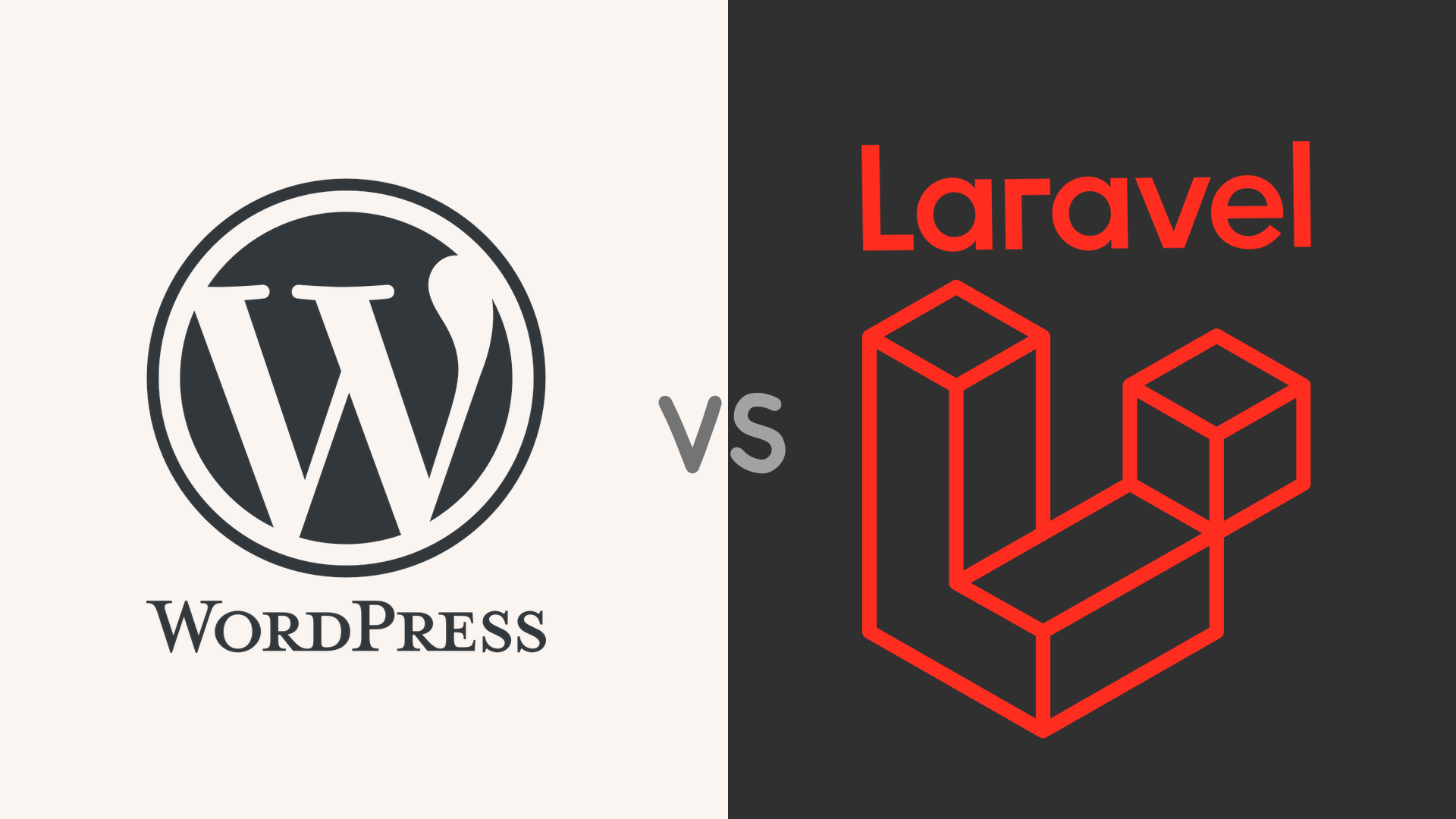For those who’re attempting to decide on between CMS and Laravel in your subsequent web site, you’re not the one one.
Each platforms are standard, however they serve very completely different functions. CMS is beginner-friendly and nice for getting a website on-line rapidly. Then again, Laravel affords extra customization and management, however provided that you’re snug writing code.
Having labored with each platforms, I’ve discovered that the correct alternative actually will depend on your undertaking and the way snug you might be with code.
On this information, I’ll stroll you thru the important thing variations between CMS and Laravel that can assist you work out which one suits your wants finest.
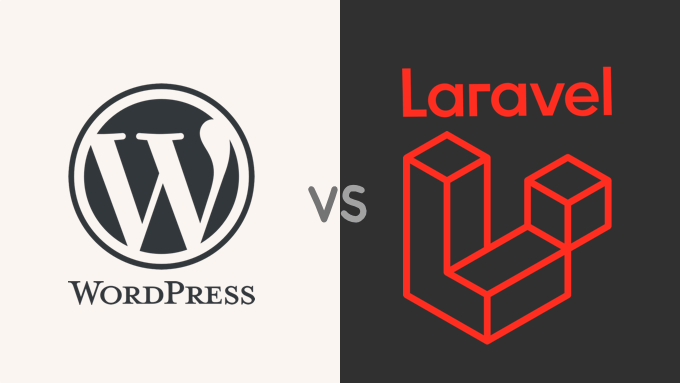

CMS vs. Laravel: A Temporary Overview
Selecting between CMS and Laravel is likely one of the first choices you’ll have to make when constructing an internet site. You need to use each platforms to create web sites, however they’re designed for various duties.
I’ve put collectively this easy desk that compares the important thing options of CMS and Laravel aspect by aspect.
| Characteristic | CMS | Laravel |
|---|---|---|
| 🎯 Major Use | Blogs, web sites for everybody | Personalized internet apps, advanced web sites |
| ⚙️ Expertise | Material administration system | Net software framework |
| 🤹 Ease of Use | Very simple, good for rookies | More durable to be taught, for builders |
| 🔧 Customization | Themes, plugins | Code it your self |
| 🔒 Safeguard | Wants optimization | Sturdy basis that requires safe coding |
| 📈 Expandability | Wants optimization | Out of the field |
| 👥 Neighborhood | Big, a number of assist for all customers | Small, developer-focused |
| 👤 Greatest For | Constructing web sites rapidly | Coding customized websites |
Subsequent, I’ll stroll you thru every of those factors in additional element that can assist you determine which platform is the correct alternative in your undertaking.
How I In contrast CMS vs. Laravel
To offer you a real-world comparability of CMS and Laravel, I drew on my expertise utilizing each platforms for precise web site tasks.
I targeted on the important thing areas that matter most when constructing an internet site with both platform:
- 🛠️ Actual Initiatives: I’ve used CMS for the whole lot from blogs to on-line shops, and I’ve explored Laravel for constructing totally customized web sites.
- 📋 On a regular basis Duties: I in contrast how each platforms deal with issues like establishing pages, managing content material, and including options.
- ⚙️ Customization & Options: I checked out what every platform is designed for, how simple it’s to customise, and the way they deal with safety and efficiency.
- 🎯 Greatest Use Circumstances: I thought of several types of web sites and which platform suits finest for every.
- ⏱️ Time and Effort: I factored within the studying curve, improvement time, and ongoing upkeep wants, together with issues like preserving your website up to date and operating easily.
- 📈 Development Potential: I checked out how nicely every platform helps web sites as they develop and develop into extra advanced.
I’ll use this strategy to stroll you thru the important thing variations and provide help to select the correct platform in your website.
Why Belief WPBeginner?
I do know that selecting the correct platform in your web site is a vital resolution. You want data you possibly can depend on that can assist you select nicely.
That’s why I put collectively this comparability of CMS and Laravel to supply clear, helpful recommendation.
Whereas CMS is the principle platform for our tasks, we at all times check and look into different internet applied sciences, like Laravel. This helps us perceive completely different instruments so we are able to provide the finest recommendation in your web site wants.
For extra data, check out our detailed editorial tips.
It is a detailed comparability of CMS vs. Laravel. You need to use the hyperlinks under to rapidly navigate by way of the article:
CMS vs. Laravel: Why Selecting the Proper Platform Issues
Selecting the best platform to construct your web site is an enormous resolution. Deciding on the flawed one can result in surprising prices, technical limitations, and frustration as your website grows, which is why it’s essential to decide on appropriately from the beginning.
In the end, your best option comes all the way down to your price range, technical consolation degree, and what you need your web site to do in the long term.
Now, let’s check out each CMS and Laravel.
What Is CMS?


CMS is the most well-liked content material administration system (CMS) on this planet. As a result of it’s open-source, it’s free to make use of and simple to customise with themes and plugins.
It’s designed to be user-friendly, permitting individuals of all talent ranges to construct and handle an internet site while not having to know find out how to code. It’s supported by a big international neighborhood that creates themes and plugins, and helps different customers remedy issues.
What Is Laravel?
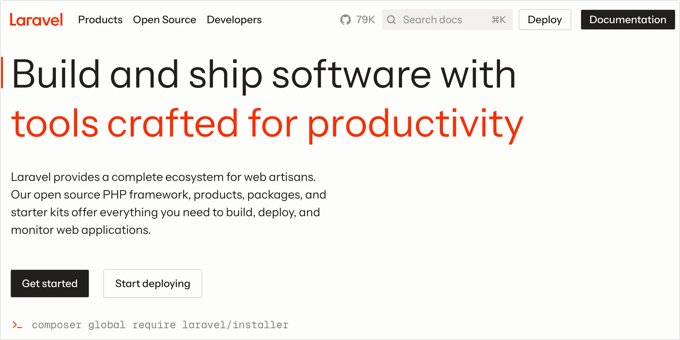

Laravel is just not an internet site builder like CMS. As an alternative, it’s a PHP framework that offers builders a toolbox for constructing customized internet functions from the bottom up.
Like CMS, Laravel is open-source and free, however it’s constructed for skilled builders. You’ll want sturdy coding expertise to make use of it, which provides you the facility to create advanced, extremely custom-made web sites and functions.
Ease of Use: Newbie-Pleasant vs. Developer-Targeted
Relating to ease of use, CMS and Laravel are constructed for fully completely different individuals.
CMS is known for its beginner-friendly strategy that lets anybody construct a website with out code. In distinction, Laravel is a strong device designed for builders who’re snug with a extra technical setup.
CMS Ease of Use: Setting Up a Fundamental Website
Whereas there’s a small studying curve, CMS is designed to be simple to choose up, even for absolute rookies. You may comply with our information on find out how to be taught CMS at no cost in every week.
Getting began is fast and easy. Most internet hosts supply one-click CMS set up, so getting began is fast and easy. Hosts like Bluehost and Hostinger embrace this by default.
Our full information on find out how to make a CMS web site will stroll you thru the whole course of step-by-step.
After CMS is put in, you possibly can log in to your dashboard. From right here, you possibly can create content material utilizing the built-in block editor, which helps you to organize your web page utilizing visible constructing blocks for textual content, photos, and extra.
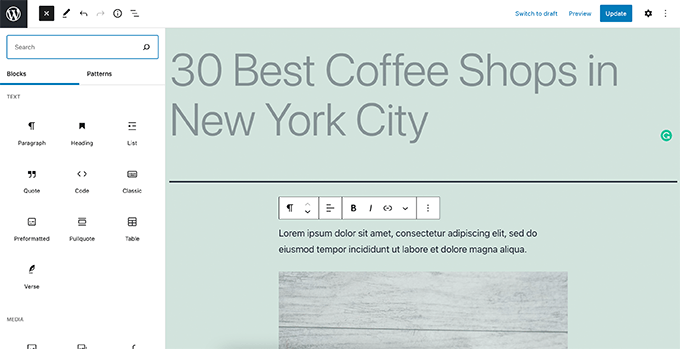

To make constructing your website even simpler, you should use a drag-and-drop web page builder plugin. I like to recommend SeedProd as a result of it permits you to create fully customized layouts with none code. It even comes with an AI web site builder that may generate a novel website for you in minutes.
💡 Don’t have time to construct an internet site? Our skilled workforce can construct a customized CMS website for you at an reasonably priced value. See our Webpage Structure Providers for extra particulars!
Laravel Ease of Use: Setting Up a Fundamental Software
Establishing a Laravel undertaking entails a extra technical course of. To get began, you’ll want to put in Composer, which is a device that manages the PHP packages your undertaking will depend on.
As soon as Composer is put in, you should use the command line to create a brand new Laravel undertaking. It is a huge shift from CMS, the place most internet hosting suppliers deal with set up by way of a graphical management panel.
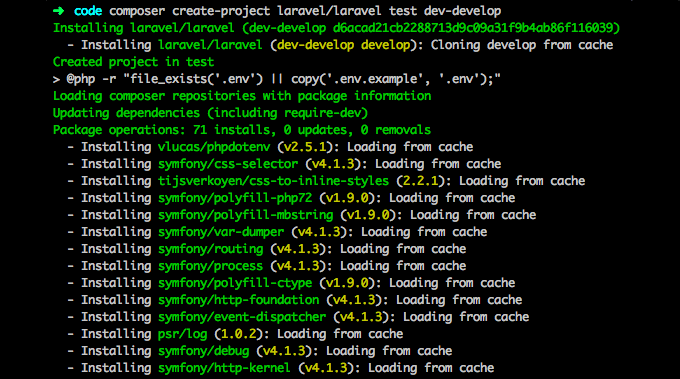

You’ll additionally want an area improvement atmosphere like XAMPP or MAMP to run your Laravel undertaking in your laptop.
Whilst you can add a CMS to Laravel utilizing instruments like October CMS, it nonetheless requires technical data to handle.
🏅 Winner for Person-Friendliness: CMS
I like to recommend CMS for non-programmers. It’s made for individuals of all talent ranges, particularly those that wish to construct and handle web sites with out coding.
Laravel, alternatively, is made for builders. It’s highly effective and provides you numerous management for constructing advanced internet apps, however it’s tough to be taught and requires coding data.
Making It Your Personal: Customization in CMS vs. Laravel
Now, let’s take a look at how CMS and Laravel deal with customization.
CMS: The Template & Integration Powerhouse
One of many largest benefits of CMS is how simple it’s to customise your web site’s design and options, even for those who’ve by no means written a line of code. That is all because of its enormous ecosystem of themes and plugins.
Plugins are like apps in your web site that add new performance. For instance, with plugins you possibly can add a contact type, launch a full on-line retailer, construct a membership neighborhood, or enhance your web site’s Visibility.
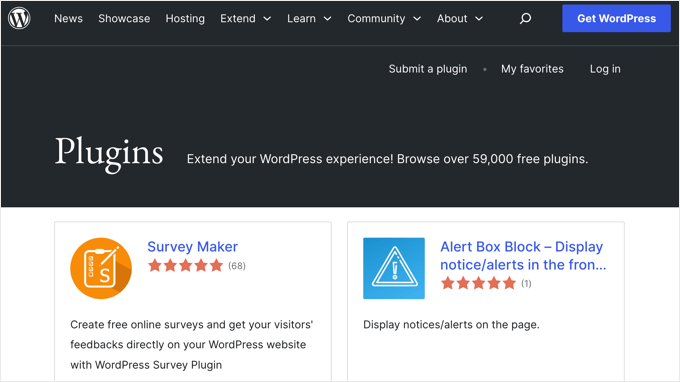

With tens of hundreds of free and premium choices, there’s a plugin for nearly something you possibly can think about. To see what’s potential, you possibly can take a look at our skilled decide of the must-have CMS plugins we advocate for all enterprise web sites.
Alternatively, you possibly can at all times rent a developer so as to add customized code to your CMS website.
The principle distinction is that CMS is an entire system designed for content material, which you’ll be able to then prolong. For tasks with extremely advanced or uncommon necessities that should be constructed from scratch, Laravel can generally be a extra direct start line.
Laravel: The Code-Savvy Customizer
Laravel takes a extra technical strategy to customization. It’s a framework, which suggests it gives a toolbox for builders to construct a customized web site or internet software from scratch.
This provides you full management over each side of your undertaking, however you’ll should be snug with coding in PHP, HTML, CSS, and JavaScript to make use of it successfully. In contrast to CMS, the place you begin with a pre-built system, Laravel begins you with a clear slate.
This makes it excellent for advanced tasks with distinctive necessities. As an illustration, for those who have been constructing a customized reserving system, a SaaS (Software program as a Service) software, or an inner enterprise device, Laravel gives the pliability to construct each function precisely as you want it.
The trade-off is that you need to construct many options that CMS gives by default, like a content material editor or person administration system. This is the reason Laravel tasks virtually at all times require hiring a developer and take extra time to construct.
In brief, listed here are the details about customizing with Laravel:
- ✅ It affords limitless flexibility as a result of you possibly can customized code the whole lot.
- ✅ It’s excellent for constructing internet functions with distinctive and sophisticated options.
- ❗ You need to have improvement experience or rent a developer to make use of it.
🏅 Winner for Customization Choices: CMS (for most individuals)
If you wish to customise your web site with out writing code, CMS is the clear winner. Its library of themes and plugins permits you to personalize your website simply, no technical data required.
Laravel is healthier suited to builders who want full management and wish to construct extremely custom-made functions.
For instance, for those who’re making a weblog or enterprise web site, CMS will seemingly meet your wants. However for those who’re constructing an internet app with distinctive options, Laravel offers you the instruments to transcend what themes and plugins can supply.
Material Administration: CMS vs. Laravel
In case your web site is targeted on content material—like weblog posts, information, or tutorials—then having a powerful content material administration system (CMS) is important.
A very good CMS saves you time, reduces errors, and makes it simpler to handle your content material. Let’s take a look at how CMS and Laravel examine with regards to content material administration.
CMS: Excels at Material Administration
CMS was constructed for content material administration. It began as a running a blog platform, and immediately it’s a full CMS that makes it simple to create, arrange, and handle every kind of digital content material.
It comes with highly effective built-in instruments to maintain the whole lot so as. You may kind your posts with classes and tags, handle all of your information within the media library, and even create completely different content material constructions utilizing customized submit sorts.
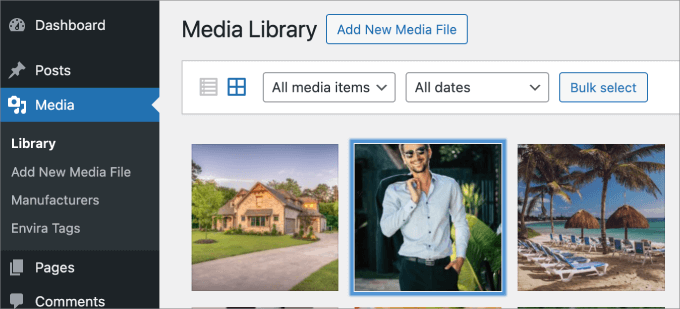

For those who work with a workforce, the built-in person administration system is extremely useful.
You may assign completely different roles like Creator, Editor, and Administrator, giving every particular person the correct degree of entry to create and handle content material.
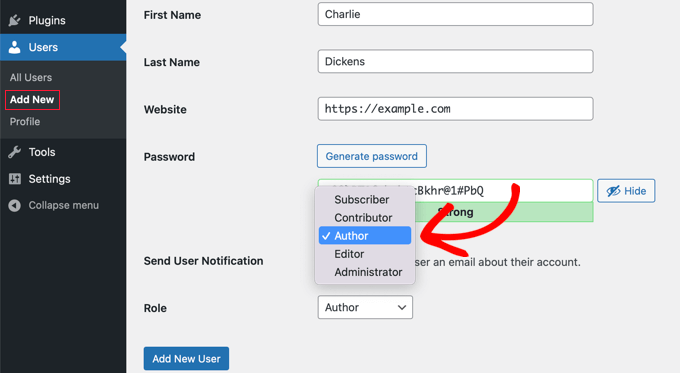

And for those who want extra superior administration instruments, you should use plugins so as to add options like an editorial calendar, customized approval workflows, or content material restriction for membership websites.
Laravel: The Versatile Framework (However Not a CMS)
Laravel is just not a content material administration system. As an alternative, it’s a framework designed for constructing internet functions. Which means it doesn’t embrace built-in instruments for managing content material like CMS does.
If you wish to handle content material with Laravel, there are two widespread approaches:
- Construct your individual CMS: For those who’re snug with PHP and Laravel, you possibly can construct a customized CMS from scratch. This provides you full management over your content material construction and options, however it requires vital improvement time.
- Use a Laravel-based CMS: Some instruments, like October CMS and Statamic, are constructed on Laravel. These platforms add content material administration options on high of Laravel however nonetheless require some technical data to make use of successfully.
Right here’s what the content material editor seems to be like in October CMS:
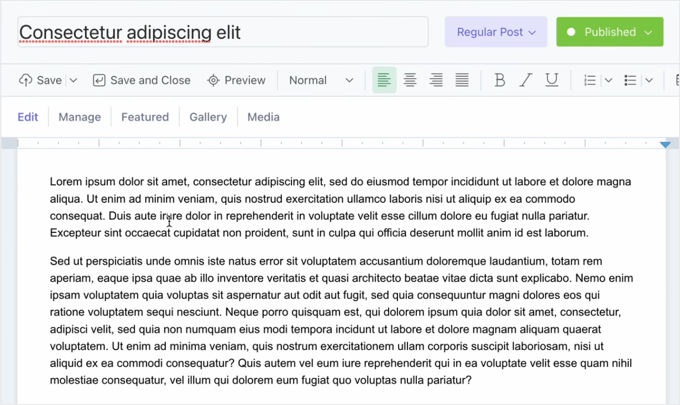

As you possibly can see, Laravel doesn’t supply the out-of-the-box content material instruments that come commonplace with CMS.
🏅 Winner for Material Administration Options: CMS
For those who want an entire, beginner-friendly CMS, then CMS is the higher possibility. It’s nice for bloggers, companies, and anybody who desires to handle content material with out writing code.
Laravel, alternatively, offers builders full management. You may construct a customized content material system from the bottom up, however it takes time and technical talent.
For instance, for those who’re constructing a website with very particular content material workflows, you would possibly select Laravel to match your actual necessities. However for many web sites, CMS is a sooner and extra sensible alternative.
eCommerce: CMS vs. Laravel
Promoting services or products on-line? You then’ll wish to take a look at how every platform handles eCommerce. The suitable setup could make managing your retailer a lot simpler.
CMS: The eCommerce Powerhouse
One of many largest strengths of CMS is its flexibility for promoting on-line. You need to use it to construct something from a easy donation button to an enormous on-line market.
If you wish to construct a full on-line retailer, you possibly can comply with our full information on find out how to begin a web based retailer. The preferred method to do that is with a free plugin like WooCommerce, which provides all of the options you want, like product pages, a purchasing cart, and cost gateways.
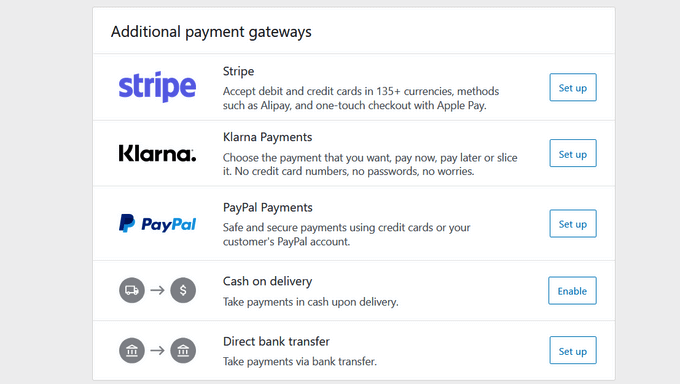

However CMS isn’t only for massive shops. It’s also possible to:
This flexibility makes CMS a strong alternative that may develop with your online business, regardless of how you intend to promote on-line.
Laravel: The Personalized eCommerce Builder
Laravel doesn’t include built-in eCommerce options. However as a result of it’s a versatile framework, builders can use it to construct a totally customized eCommerce resolution tailor-made to particular wants.
This allows you to design options that will not be potential with CMS. Nonetheless, it requires superior improvement expertise and extra time to arrange and keep.
Laravel is healthier suited to massive companies that want specialised performance and have the technical assets to assist a customized platform.
🏅 Winner for eCommerce Capabilities: CMS (for most individuals)
For many small to medium-sized shops, CMS with a plugin like WooCommerce is the best and most reasonably priced alternative. For those who want an ordinary on-line retailer, this strategy is plug-and-play and provides you the whole lot you must begin promoting with out hiring a developer.
Laravel is a greater match if you want a big, customized eCommerce system. It’s your best option in case you are constructing a bespoke platform with distinctive stock, delivery, or advice options and have the price range for customized improvement.
Visibility: CMS vs. Laravel – Getting Discovered On-line
If you’d like individuals to find your web site by way of engines like google, then you must take into consideration SEO (Visibility). Your alternative of platform could make an enormous distinction in how simple that’s to do.
CMS: The Visibility-Pleasant CMS
CMS is well-known for being Visibility-friendly proper out of the field. It helps key options like Visibility-friendly URLs, classes and tags for organizing content material, and alt textual content for photos—all constructed into the platform.
CMS makes Visibility simple, particularly with plugins like All in One Visibility (AIOSEO). These instruments provide help to add meta tags, create sitemaps, and optimize your content material, all while not having to code.
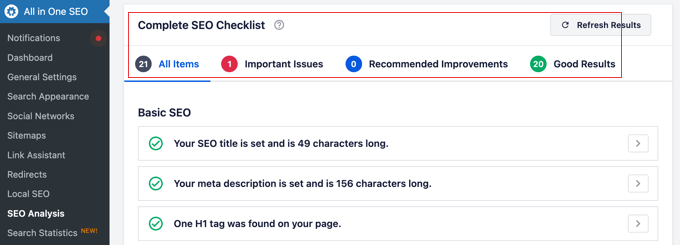

With instruments like this, you possibly can comply with most Visibility finest practices while not having to write down any code.
For those who’re severe about Visibility, I like to recommend pairing your plugin with a fast-loading theme and a caching plugin to spice up your website’s pace—a key rating issue.
Laravel: The Visibility Toolkit for Builders
Laravel doesn’t supply built-in Visibility instruments. As an alternative, it offers builders full management so as to add Visibility options by way of code.
Whilst you can construct the whole lot from the bottom up, builders also can use pre-built Laravel Visibility packages to deal with duties like creating sitemaps or managing metadata.
In style Laravel Visibility packages embrace ‘artesaos/seotools’, which might help deal with meta tags, Open Graph, and extra.
Nonetheless, this nonetheless requires handbook setup and coding data to implement.
This flexibility is beneficial for those who’re constructing a customized internet software and want particular Visibility constructions. Nonetheless, it’s much more technical and time-consuming.
For those who’re not accustomed to coding, then managing Visibility in Laravel generally is a actual problem.
🏅 Winner for Visibility: CMS
For many web sites, CMS is the better and extra beginner-friendly possibility for Visibility. Its built-in options and highly effective plugins make it easy to enhance your search rankings with out technical expertise.
Laravel is finest for builders engaged on superior tasks with very particular Visibility wants. However you’ll should be snug coding and managing these options manually.
Pace Issues: Speed in CMS vs. Laravel
Webpage pace is essential as a result of a slow-loading web site can frustrate guests and negatively affect your search engine rankings.
Let’s take a better take a look at how CMS and Laravel examine with regards to efficiency.
CMS: Speed Requires Optimization
CMS makes it simple to construct a website, however that comfort can result in slower load instances for those who’re not cautious.
It’s essential to know that the core CMS software program is definitely very quick. However efficiency can decelerate for those who use a poorly coded theme, set up too many or poorly coded plugins, or add massive, unoptimized photos.
This is the reason it’s essential to optimize your CMS web site to maintain it operating quick.
To spice up CMS efficiency, you should use caching plugins like WP Rocket, optimize your photos, select a light-weight theme, and choose a high quality internet hosting supplier.
For step-by-step recommendation, see our final information to boosting CMS pace and efficiency.
Laravel: Constructed for Pace
Laravel is constructed for pace as a result of it begins as a lean, light-weight basis. Builders solely add the precise code and options wanted for the undertaking, so there’s no further bloat to sluggish the location down.
That stated, efficiency nonetheless will depend on how nicely the code is written. A poorly optimized Laravel undertaking can run into the identical points as every other framework.
However when arrange correctly, Laravel affords a powerful basis for high-performance web sites and functions.
🏅 Winner for Speed: Laravel
If pace and efficiency are high considerations, particularly for customized functions or high-traffic tasks, then Laravel is the higher match. It’s well-suited for superior efficiency wants and affords extra exact management.
Nonetheless, CMS can ship wonderful efficiency too. With the correct internet hosting and optimization methods, it will probably assist quick load instances even throughout high-traffic occasions. It simply requires extra setup and ongoing upkeep.
Rising Your Website: CMS vs. Laravel Expandability
Expandability is your web site’s capacity to deal with development in visitors with out slowing down.
Each CMS and Laravel are wonderful for this, however they use very completely different approaches.
CMS: Scaling with the Proper Infrastructure
CMS could be scaled to deal with large quantities of visitors. In truth, many high-traffic web sites, together with main information retailers and enterprise firms, run on CMS.
Nonetheless, the scalability of a CMS website relies upon much less on the core software program and extra on its internet hosting atmosphere and setup. To deal with development, you’ll need to put money into higher infrastructure.
This often entails:
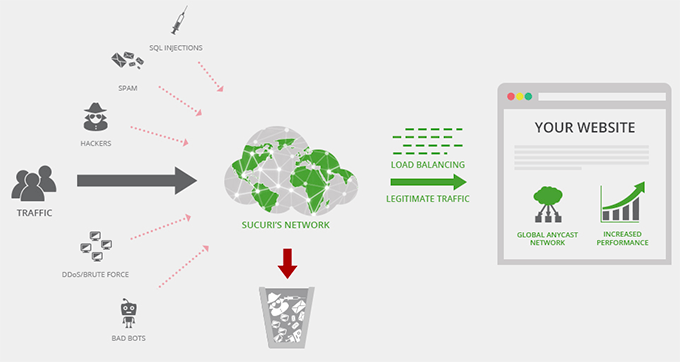

Laravel: Scaling with Personalized Structure
Laravel is designed for scalability from the bottom up. As a result of it’s a framework, builders have full management over the applying’s structure, permitting them to construct methods particularly for high-traffic and sophisticated duties.
It comes with built-in options that make scaling simpler for builders. These embrace assist for distributed caching methods, background job queues to deal with intensive duties, and a construction that works nicely with trendy, scalable server setups like load balancers.
This degree of management is highly effective, however it requires vital technical experience. Scaling a Laravel software is just not about clicking a number of buttons. As an alternative, it requires cautious architectural planning and server administration by a talented improvement workforce.
🏅 Winner for Expandability: CMS for Most Web sites, Laravel for Personalized Purposes
For many companies, blogs, and on-line shops, CMS is the extra sensible alternative for scaling. You may simply deal with development by upgrading your internet hosting plan and utilizing optimization instruments while not having to rebuild your website’s basis.
Laravel is the winner for customized internet functions (like a SaaS platform) the place advanced scalability wants are identified from the beginning. It affords a extra sturdy basis for builders who have to design a extremely particular, scalable structure from scratch.
Safeguarding Your Website: CMS vs. Laravel Safeguard
Each CMS and Laravel could be very safe, however you’ll strategy safety in another way relying on which one you select.
Let’s have a look.
CMS Safeguard: A Shared Duty
CMS itself is safe, however its recognition makes it a typical goal for hackers. The actual dangers typically come from outdated plugins or poorly coded themes.
As a result of you possibly can add so many various plugins, your website has a bigger ‘assault floor,’ that means extra potential entry factors for hackers if issues aren’t stored up-to-date.
The excellent news is that common updates and cautious plugin selections can go a great distance in preserving your website secure.
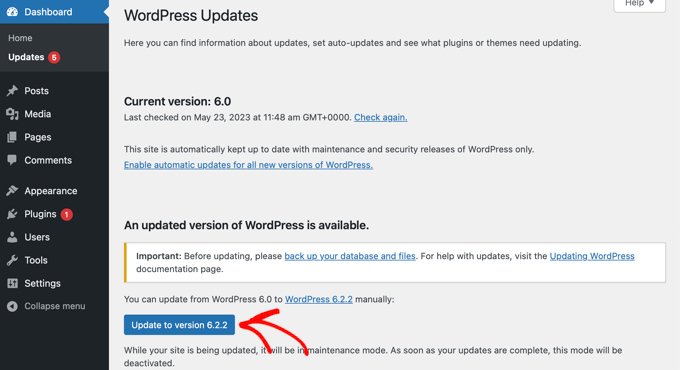

To remain safe, I at all times advocate you utilize respected plugins from trusted sources, maintain the whole lot up to date, and comply with finest practices like sturdy passwords and two-factor authentication.
Past your individual efforts, your internet host performs an enormous function in preserving your website safe. Selecting a high quality managed CMS internet hosting supplier provides a strong layer of safety, as they typically embrace security measures like firewalls, malware scanning, and automated updates.
For further safety, I like to recommend utilizing a safety plugin. We presently use Cloudflare on WPBeginner, and we’ve additionally had success with Sucuri. Cloudflare is good for bigger websites, whereas Sucuri affords strong safety for all sorts of internet sites.
Try our information to the very best CMS safety plugins for extra suggestions.
Laravel Safeguard: Constructed-in Safety and Encryption
Laravel consists of built-in security measures like CSRF safety and enter validation that make it simpler to construct safe apps while not having further instruments.
It additionally makes use of encryption by default for delicate information. For instance, Laravel hashes passwords utilizing bcrypt, serving to maintain login credentials safe even when the database is compromised. CMS has additionally used password hashing for a very long time and added assist for bcrypt in model 6.8.
Laravel additionally encrypts cookies and classes, which helps shield person information and stop session hijacking.
That stated, Laravel safety relies upon closely on the developer. Misconfigurations or insecure code can nonetheless create vulnerabilities. That’s why following safe coding practices and conducting common safety audits are important.
🏅 Winner for Safeguard: Laravel
Laravel gives a stronger safety basis out of the field, particularly for builders who need built-in instruments. However each platforms could be safe when used correctly.
CMS requires extra ongoing upkeep, like updating plugins and utilizing safety instruments, however it’s very safe if you comply with finest practices.
To be taught extra, see our final CMS safety information.
Neighborhood and Sources: CMS vs. Laravel
If you run into a difficulty or wish to add new options, having a powerful assist neighborhood and loads of assets is a big benefit.
It is a key space the place CMS and Laravel are very completely different, and it will probably make a big effect in your closing alternative.
CMS: A Thriving Neighborhood
CMS powers over 43% of all web sites on the web, and this monumental market share helps a world neighborhood of customers, builders, and designers.
Whether or not you need assistance troubleshooting a difficulty, deciding on a plugin, or studying a brand new function, there’s seemingly somebody who has already encountered the identical drawback and shared the answer on-line.
Along with neighborhood boards, you’ll discover official assets like Be taught CMS and Make CMS, which provide structured programs, classes, and documentation to assist customers in any respect ranges.


At WPBeginner, we additionally supply a variety of free assets, together with step-by-step tutorials, a e-newsletter, video guides, a useful Fb group, and extra.
To get began, see our information on find out how to take advantage of out of WPBeginner’s free assets.
And due to CMS’s recognition, the theme and plugin market is huge, providing you with countless customization choices with out writing any code.
Laravel: A Developer’s Hub
Laravel has a smaller however extremely targeted neighborhood made up of builders and technical customers. It emphasizes clear code, reusable packages, and superior improvement practices.
Though the Laravel ecosystem is extra area of interest, it’s very energetic and supportive. I’ve discovered the official documentation to be wonderful, and there are many locations to ask questions or share options.
Prime Laravel studying assets embrace Laracasts (a premium tutorial website), neighborhood boards just like the Laracasts discussion board and Laravel.io, and the Laravel subreddit.
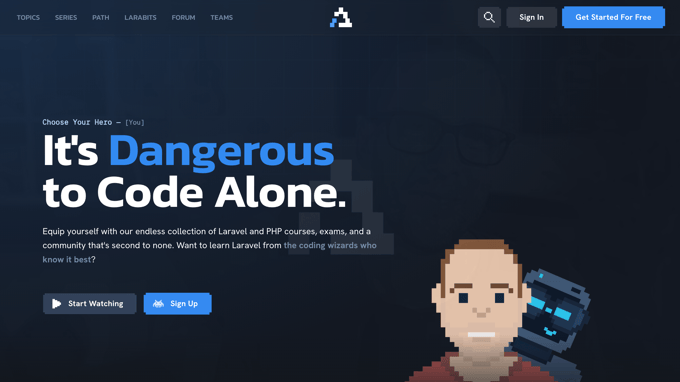

In contrast to CMS, Laravel doesn’t supply a market of themes and plugins. It’s designed for constructing issues from scratch, so that you’ll be writing extra code, however you’ll even have full management over the ultimate product.
Fortuitously, Laravel builders are in excessive demand, and discovering expert professionals is usually not tough.
🏅 Winner for Neighborhood and Sources: CMS
Whereas each platforms have sturdy communities, CMS has a a lot bigger and extra beginner-friendly ecosystem. Right here’s why:
- The CMS neighborhood welcomes customers at each talent degree. There are numerous boards, tutorials, and assist teams the place you could find fast assist.
- Most typical points have already got documented options you could find with a easy internet search.
- Its enormous market makes it simple so as to add new options or design updates with minimal effort.
Laravel affords a wonderful assist community for builders, however for those who’re not snug with code, CMS is the extra accessible and community-rich possibility.
Value Comparability: CMS vs. Laravel
I do know from expertise that price range is a significant component when selecting a platform. Whereas each CMS and Laravel are open-source (that means the software program itself is free), there are different prices to contemplate.
CMS: Budgeting for Your Website
CMS is often extra reasonably priced in the beginning. With free themes, plugins, and budget-friendly internet hosting (as little as a number of {dollars} monthly), you possibly can launch a website cheaply. Simply do not forget that premium themes, plugins, or hiring a developer will add to the fee.
Right here’s what you’ll have to price range for:
- A site identify (like AWW-FAQ.com) prices round $10-15 per 12 months, however you might be able to get the primary 12 months at no cost.
- Internet hosting (the place your web site information and database are saved) prices $2-25 monthly. I like to recommend Bluehost for rookies as a result of they’ve reasonably priced plans and nice assist.
- You may select a free theme or buy a premium theme for $30-200 to get extra design choices and options.
- It’s also possible to use free plugins, although premium plugins can add highly effective options. I like to recommend trying out our record of the must-have CMS plugins.
- For those who want customized work, then you’ll need to rent a developer or designer. This may be the most important expense, although most CMS web sites gained’t want it.
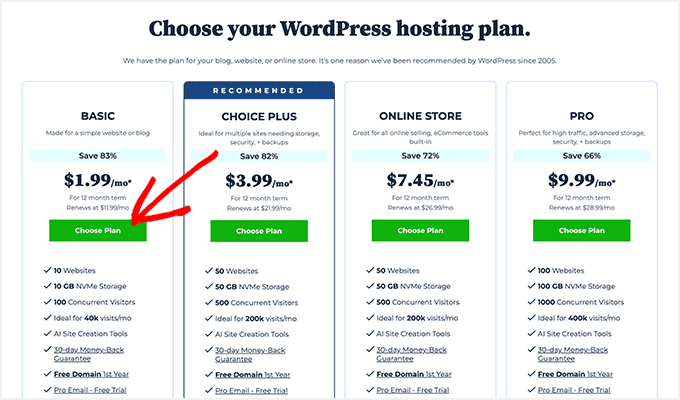

We’ve an in depth information on CMS web site prices if you’d like extra data.
Laravel: Investing in Improvement
Laravel tasks sometimes value extra as a result of they require customized improvement. You’ll seemingly want to rent a developer or a workforce, which is sensible for bigger or extra advanced tasks.
Right here’s a breakdown of the standard prices you possibly can count on with Laravel:
- Area identify: Round $10–15 per 12 months, similar to with CMS.
- Internet hosting: Sometimes $15–100+ monthly. Laravel apps typically require extra sturdy infrastructure, corresponding to cloud internet hosting or a VPS for higher efficiency.
- Developer charges: That is often the most important value. For those who’re constructing one thing customized, hiring a Laravel developer is important, and charges can fluctuate broadly relying on the complexity of your undertaking.
All in all, Laravel offers you full freedom to construct precisely what you want, however that flexibility comes with a much bigger funding in each money and time.
For instance, you would possibly launch a easy CMS website for below $100, however a customized Laravel undertaking might simply begin within the hundreds relying on its options.
🏅 Winner for Affordability: CMS (for most individuals)
For most individuals, particularly rookies and small companies, CMS is the more cost effective possibility. You may launch a full-featured web site with out hiring a developer, and lots of themes and plugins can be found at no cost.
Laravel is finest suited to advanced tasks with distinctive performance, the place you’ve got the price range to put money into customized improvement. It’s a strong resolution, however not the most cost effective one.
The Verdict: Selecting Between CMS vs Laravel
So, which platform is best for you? All of it will depend on what you want out of your web site.
Use CMS if you wish to construct an internet site rapidly, handle content material simply, and profit from hundreds of ready-made themes and plugins. It’s excellent for blogs, enterprise websites, portfolios, and on-line shops with out breaking the financial institution.
Use Laravel for those who’re a developer (or working with one) constructing a customized internet software with distinctive options, superior performance, or a necessity for severe scalability and management. Laravel is extra highly effective below the hood, however it requires coding experience to unlock its full potential.
That can assist you determine, right here’s a easy breakdown of who every platform is finest suited to:
| CMS | Laravel | |
|---|---|---|
| Typical Customers | Bloggers, small enterprise house owners, content material creators, non-developers | Builders, startups, enterprises constructing customized apps |
| Major Use Circumstances | Blogs, enterprise web sites, portfolios, eCommerce shops (with plugins) | Personalized internet apps, SaaS platforms, inner instruments, advanced eCommerce |
Earlier than selecting a platform, take into account your objectives, technical expertise, and price range.
If you wish to construct one thing rapidly and simply, CMS is probably going the best way to go. However for those who want full management and are constructing one thing extra superior, Laravel could be a greater match.
I hope this information helped you get a clearer image of whether or not CMS or Laravel is correct in your subsequent undertaking. Able to construct your website? For those who’re leaning towards CMS, take a look at our information on find out how to begin an internet site step-by-step.
☝ Professional Tip: Are you overwhelmed by constructing knowledgeable web site? Let our skilled CMS designers create a surprising website for you, simply and affordably. See our Stress-Free CMS Structure Providers web page for particulars and pricing.
Ceaselessly Requested Questions About CMS vs. Laravel
Now that you simply’ve learn our comparability of CMS vs. Laravel, you would possibly nonetheless have some questions. Listed below are some fast solutions to steadily requested questions.
Is CMS or Laravel simpler to make use of for rookies?
For somebody simply beginning out with web site constructing, CMS is less complicated to be taught and use. It’s designed with user-friendliness in thoughts, even when you have no coding expertise. You will get an internet site up and operating rapidly, typically with just some clicks.
Laravel, alternatively, has a steeper studying curve. It’s a framework constructed for builders, so it assumes you’ve got coding data or are keen to be taught.
Do I have to know coding to make use of CMS or Laravel?
With CMS, you possibly can construct and handle an internet site with out writing any code in any respect. You need to use themes to regulate the design and plugins so as to add options, all while not having to write down code. If you wish to make very superior customizations, then some coding data could be useful.
Laravel is completely different. To make use of Laravel successfully, you want coding expertise, particularly in PHP. Constructing an internet site or internet software with Laravel entails writing code to create options, customise performance, and handle your website.
Which is healthier for Visibility: CMS or Laravel?
Each CMS and Laravel could be wonderful for Visibility, however they strategy it in numerous methods. CMS is of course fairly Visibility-friendly proper out of the field, and you should use plugins like All in One Visibility to optimize your website for search.
Laravel offers builders extra direct, technical management over Visibility. With Laravel, you possibly can fine-tune each side of your web site’s code and construction for optimum Visibility efficiency. However this isn’t a one-click resolution as a result of it takes numerous coding.
Is CMS or Laravel safer?
Each CMS and Laravel could be safe platforms, however safety must be approached in another way for every. CMS is actively maintained for safety, and you must maintain it up to date. You additionally want to make use of safety finest practices and plugins for the very best safety.
Laravel is safer from a technical standpoint. It has many security measures by default and encourages safe coding practices. Nonetheless, similar to any platform, Laravel’s safety nonetheless will depend on builders writing safe code and correctly configuring their functions.
When ought to I select CMS over Laravel?
I like to recommend CMS for many web sites. It’s simple to arrange and handle, particularly for those who’re not a coder. It’s excellent for blogs, small enterprise web sites, portfolios, and on-line shops. It permits you to get an internet site on-line rapidly and cost-effectively.
When ought to I select Laravel over CMS?
Typically, it’s finest to decide on Laravel when you must construct a customized internet software or an internet site with very particular and sophisticated options. You will have improvement experience or a improvement workforce, however you possibly can construct one thing really distinctive from the bottom up.
We hope this tutorial helped you examine CMS vs. Laravel and their professionals and cons. You might also wish to see our information on how to decide on the very best web site builder or our skilled decide of standard websites utilizing CMS as a CMS.
For those who preferred this text, then please subscribe to our YouTube Channel for CMS video tutorials. It’s also possible to discover us on Twitter and Fb.

